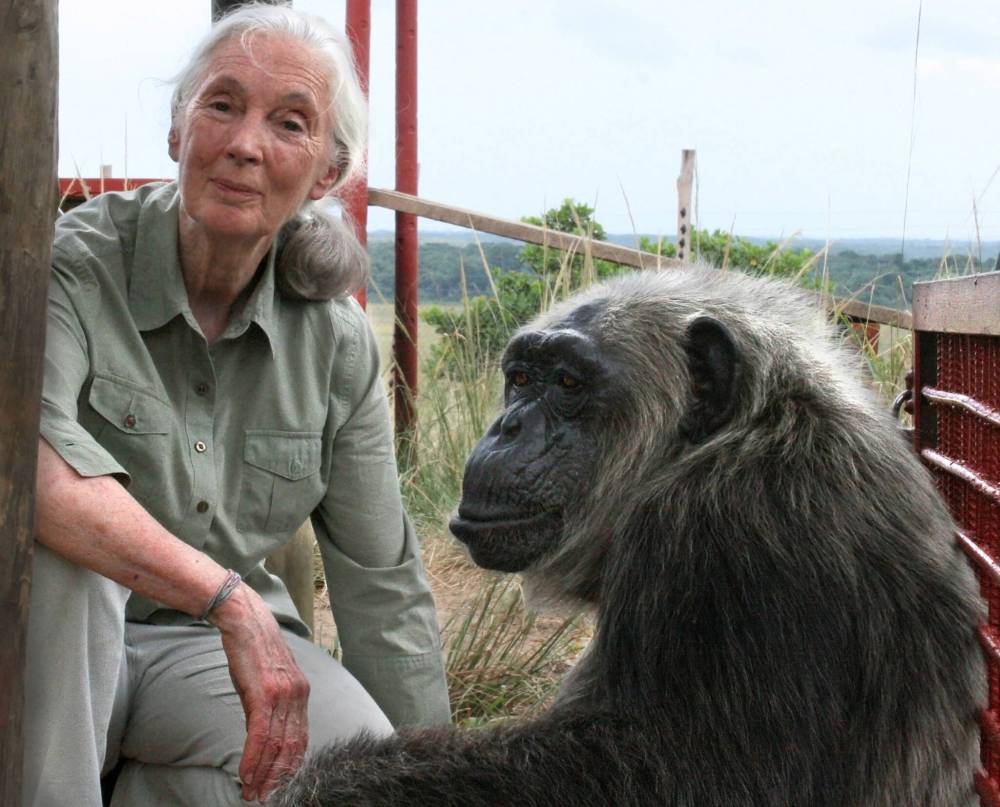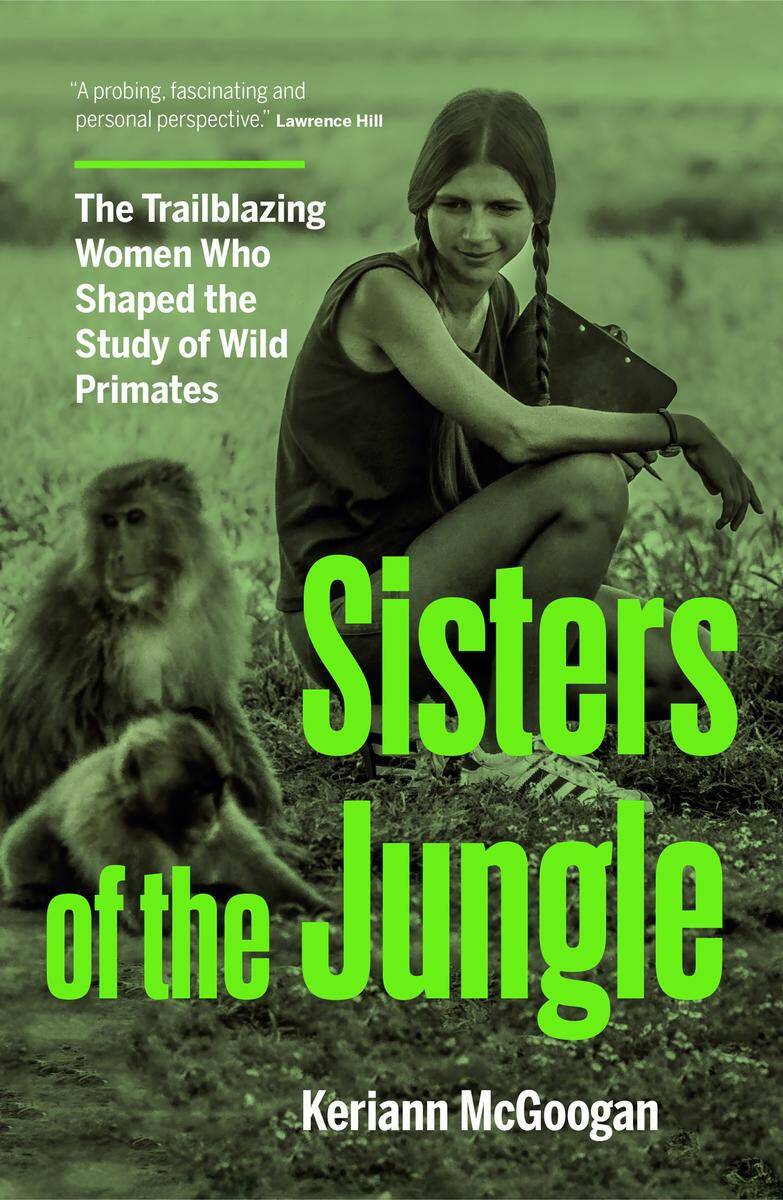Forces of nature
Female primatologists prove pivotal to progress in their field
Advertisement
Read this article for free:
or
Already have an account? Log in here »
To continue reading, please subscribe:
Monthly Digital Subscription
$0 for the first 4 weeks*
- Enjoy unlimited reading on winnipegfreepress.com
- Read the E-Edition, our digital replica newspaper
- Access News Break, our award-winning app
- Play interactive puzzles
*No charge for 4 weeks then price increases to the regular rate of $19.00 plus GST every four weeks. Offer available to new and qualified returning subscribers only. Cancel any time.
Monthly Digital Subscription
$4.75/week*
- Enjoy unlimited reading on winnipegfreepress.com
- Read the E-Edition, our digital replica newspaper
- Access News Break, our award-winning app
- Play interactive puzzles
*Billed as $19 plus GST every four weeks. Cancel any time.
To continue reading, please subscribe:
Add Free Press access to your Brandon Sun subscription for only an additional
$1 for the first 4 weeks*
*Your next subscription payment will increase by $1.00 and you will be charged $16.99 plus GST for four weeks. After four weeks, your payment will increase to $23.99 plus GST every four weeks.
Read unlimited articles for free today:
or
Already have an account? Log in here »
Some are world famous — Jane Goodall, Biruté Galdikas and Dian Fossey, for example. Others are scientifically famous, such as Jeanne Altmann, Alison Jolly or Linda Fedigan. But all these women, and many others, were part of a transformation in the 1960s and ‘70s, blazing a scientific trail in jungles around the world to learn more about our closest relatives.
In Sisters of the Jungle: The Trailblazing Women Who Shaped the Study of Wild Primates, Canadian primatologist Keriann McGoogan offers a compelling tribute to the women who revolutionized the study of primates.
Blending memoir, biography and scientific history, McGoogan charts a lineage of female primatologists whose work has shaped both the discipline and its public perception.

Fernando Turmo / Jane Goodall Institute
Many primatologists, such as Jane Goodall, become conservationists by necessity, confronting the effects of habitat loss and the pet trade on primate populations.
McGoogan herself is an “accidental scientist,” having switched from English to primatology during her undergraduate studies.
Her fieldwork in Belize and Madagascar led her to discover a rich legacy of women who had already carved paths through the jungle — both literal and metaphorical. While women remain underrepresented in most science, technology, engineering and mathematics (STEM) fields, primatology stands out as an exception.
The book’s strength lies in its personal touch. McGoogan has studied under or alongside many of the women she profiles, including Fedigan, who entered the field in the 1960s and later theorized that primatology might be a feminist science. Fedigan’s work, as well as that of others, suggests the discipline’s openness to female mentorship and its focus on social behaviour may have made it more accessible to women.
McGoogan doesn’t shy away from critique. She challenges generalizations, like Louis Leakey’s claim that women make better observers due to their patience and highlights the persistent glass ceiling in academia.
Leakey’s inclusion in a book about women may raise eyebrows, but McGoogan justifies it by acknowledging his pivotal role in launching Goodall’s study of chimpanzees, Fossey’s study of gorillas and Galdikas’ study of orangutans.
To balance this, she also candidly addresses his personal failings and womanizing, refusing to sanitize his legacy.

Sisters of the Jungle
The book also introduces lesser-known figures such as Jeanne Altmann, whose five-decade study of baboons and contributions to data standardization were groundbreaking, and Sarah Hrdy, whose controversial research on infanticide among langurs reframed evolutionary theory. Hrdy’s resilience in the face of criticism exemplifies the courage McGoogan admires in her subjects.
Jolly, dubbed the “mother of lemurs,” emerges as a personal hero for McGoogan, whose own PhD research followed in Jolly’s footsteps. This underscores the book’s emotional connections, as McGoogan empathizes with the physical and emotional toll of fieldwork, from malaria and injuries to bureaucratic hurdles and financial strain.
Beyond individual stories, Sisters of the Jungle explores the intersection of science and activism. Many primatologists become conservationists by necessity, confronting the effects of habitat loss and the pet trade on primate populations.
While the narrative occasionally suffers from uneven pacing and repetition, its accessibility and depth of research make it readable and even inspirational. McGoogan resists diving too deeply into technical science, opting instead for a high-level overview that remains relatable to general readers.
Ultimately, Sisters of the Jungle is not just a celebration of pioneering women. It’s a call to recognize their enduring influence and how deeply women have contributed to major discoveries in the field.

Travis Steffens photo
Keriann McGoogan
McGoogan’s heartfelt and well-researched account ensures their stories won’t be lost in the canopy.
Julie Kentner is a Winnipeg writer.
History
Updated on Sunday, September 28, 2025 10:36 AM CDT: Corrects typo in spelling of Galdikas


